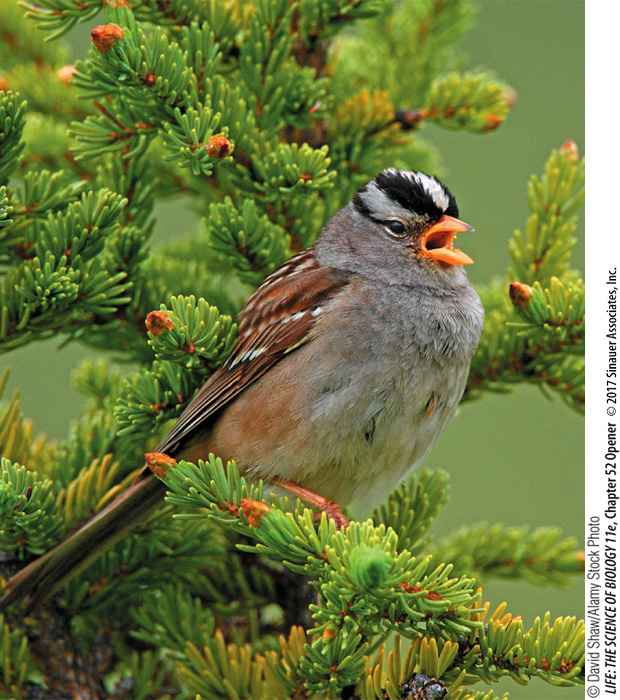investigating life
A springtime joy is hearing birds sing. Why do they do it? Male songbirds use species-specific song to compete with other males for territory. They also sing to attract mates. Females may not sing, but they recognize the songs of their own species. Males of most species, such as the white-crowned sparrow (Zonotrichia leucophrys), must learn their song, but what they can learn is influenced by their genes, and when they can learn it is influenced by their physiology. A hatchling in the nest hears his father and other white-crowned sparrows singing. He also hears the songs of many other bird species. He does not sing until he approaches sexual maturity almost a year later, and when he does, he sings his father’s type of song and not that of other species. His first attempts at song are poor, but by trial and error he gradually matches his song to the one stored in his memory, even though other species are singing in his environment. His singing talent depends on two critical conditions: he must hear his species-specific song in the first 2 months of life, and he must be able to hear himself as he develops his song. These are both learning experiences, but the bird’s genes play an important role too.
Male white-crowned sparrows raised alone in the laboratory and exposed to recordings of unrelated species will not learn any of those song templates even if they are played over and over. But if in that cacophony of songs, a bird’s species-specific song is played just a few times, he will sing that song the following spring. Thus male white-crowned sparrows must learn their song, but a genetic predisposition ensures that they learn the song of their own species.
An important reason why males learn only their species-specific song is that the females also listen to their father’s songs when they are nestlings. When they mature, they choose mates that sing like their fathers did. But how does one female chose her specific mate? There is variation in male songs, and some components of songs seem sexier than others. Also, the way the songs are performed may differ among individuals and in different social contexts. As in humans, variability surely plays a role in mate choice.
How does social context influence the learning and expression of birdsong?
